#belgian composers
Text
youtube
Victor Vreuls (1876-1944) -Violin Sonata No. 1 in B Major: Animé ··
Diane Andersen · Eliot Lawson
5 notes
·
View notes
Text
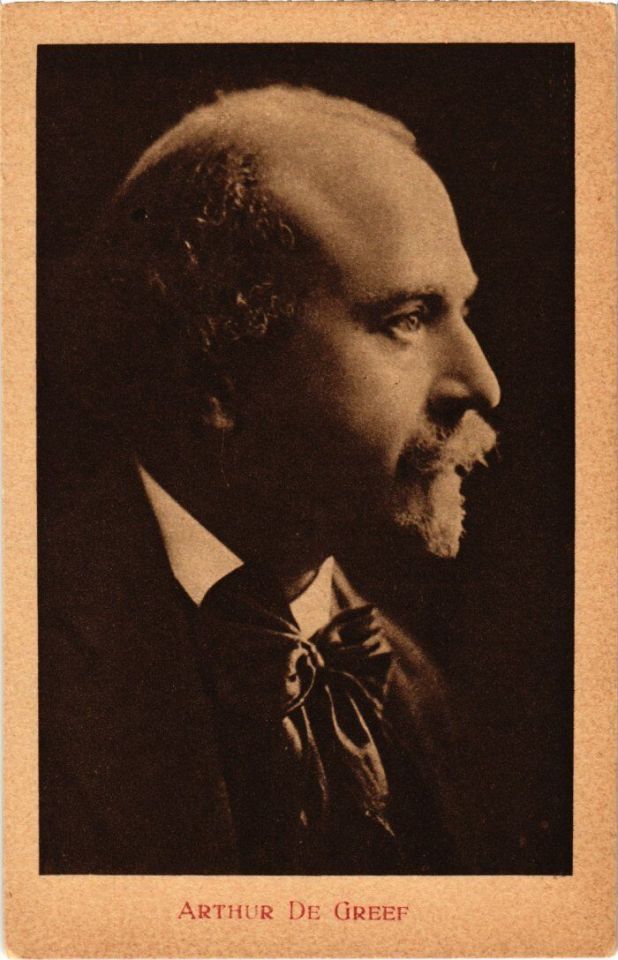
Belgian pianist and composer Arthur de Greef on a vintage postcard
#pianist#historic#belgian#photo#briefkaart#arthur#vintage#composer#sepia#photography#carte postale#postcard#postkarte#postal#tarjeta#ansichtskarte#old#ephemera#de#postkaart#greef#arthur de greef
6 notes
·
View notes
Text



The Composer André-Ernest-Modeste Grétry, circa 1804-8
By Jean-Baptiste Stouf, Belgian
#sculpture#opera#composer#classical#classical music#Grétry#Jean-Baptiste Stouf#stouf#napoleonic era#19th century#neoclassical art#neoclassical#neoclassicism#1st empire#Belgian#Belgian art
11 notes
·
View notes
Text
youtube
Dirk Brossé's themes for "The Lovers" (Roland Joffé).
#dirk brossé#roland joffé#josh hartnett#Tamsin egerton#film music#soundtrack#soundtracks#film score#movie music#film composer#composer#composers#orchestra#erhu#movie#movies#film#films#belgium#belgian#music#musician#musicians#Youtube
0 notes
Photo
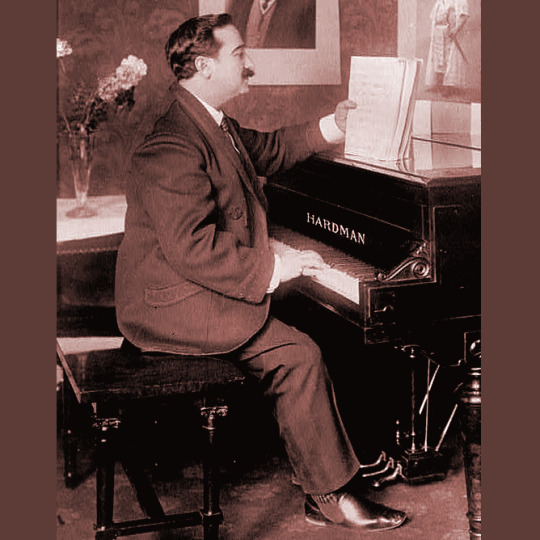
World-renowned composer, Pierre Botte Élastique, at work on his latest composition ‘Quelle était la profondeur de ma moustache’ or ‘How Deep Was My Moustache’ for piano and flute.
The Belgian composer, Pierre Botte Élastique, was inspired by everyday - one might say, banal objects, claiming that he could hear the tune of any object if he placed his hand upon it.
Botte Élastique: ‘Each object sings to me with its own song. I exist merely to interpret their message.’
Critics dismissed this as sheer twaddle.
Pierre Botte Élastique also composed The Well-Tempered Clavicle, an ode to his collar bone which he had broken whilst attempting to tune it so that it would not be ‘out of tune’ with his piano.
0 notes
Text
The Best News of Last Year
1. Belgium approves four-day week and gives employees the right to ignore their bosses after work

Workers in Belgium will soon be able to choose a four-day week under a series of labour market reforms announced on Tuesday.
The reform package agreed by the country's multi-party coalition government will also give workers the right to turn off work devices and ignore work-related messages after hours without fear of reprisal.
"We have experienced two difficult years. With this agreement, we set a beacon for an economy that is more innovative, sustainable and digital. The aim is to be able to make people and businesses stronger," Belgian prime minister Alexander de Croo told a press conference announcing the reform package.
2. Spain makes it a crime for pro-lifers to harass people outside abortion clinics

Spain has criminalized the harassment or intimidation of women going for an abortion under new legislation approved on Wednesday by the Senate. The move, which involved changes to the penal code, means anti-abortion activists who try to convince women not to terminate their pregnancies could face up to a year behind bars.
3. House passes bill to federally decriminalize marijuana

The House has voted with a slim bipartisan majority to federally decriminalize marijuana. The vote was 220 to 204.
The bill, sponsored by Democratic Rep. Jerry Nadler of New York, will prevent federal agencies from denying federal workers security clearances for cannabis use, and will allow the Veterans’ Administration to recommend medical marijuana to veterans living with posttraumatic stress disorder.
The bill also expunges the record of people convicted of non-violent cannabis offenses, which House Majority Leader Steny Hoyer said, “can haunt people of color and impact the trajectory of their lives and career indefinitely.”
4. France makes birth control free for all women under 25

The scheme, which could benefit three million women, covers the pill, IUDs, contraceptive patches and other methods composed of steroid hormones.
Contraception for minors was already free in France. Several European countries, including Belgium, Germany, the Netherlands and Norway, make contraception free for teens.
5. The 1st fully hydrogen-powered passenger train service is now running in Germany. The only emissions are steam & condensed water.

Five of the trains started running in August. Another nine will be added in the coming months to replace 15 diesel trains on the regional route. Alstom says the Coradia iLint has a range of 1,000 kilometers, meaning that it can run all day on the line using a single tank of hydrogen. A hydrogen filling station has been set up on the route between Cuxhaven, Bremerhaven, Bremervörde and Buxtehude.
6. Princeton will cover all tuition costs for most families making under $100,000 a year, after getting rid of student loans

In September, the New Jersey Ivy League school announced it would be expanding its financial aid program to offer free tuition, including room and board, for most families whose annual income is under $100,000 a year. Previously, the same benefit was offered to families making under $65,000 a year. This new income limit will take effect for all undergraduates starting in the fall of 2023.
Princeton was also the first school in the US to eliminate student loans from its financial aid packages.
7. Humpback whales no longer listed as endangered after major recovery

Humpback whales will be removed from Australia's threatened-species list, after the government's independent scientific panel on threatened species deemed the mammals had made a major recovery. Humpback whales will no longer be considered an endangered or vulnerable species.
Climate change and fishing still pose threats to their long-term health.
Some other uplifting news from last year:
A Cancer Trial’s Unexpected Result: Remission in Every Patient
California 100 percent powered by renewables for first time
Israel formally bans LGBTQ conversion therapy
Tokyo Passes Law to Recognize Same-Sex Partnerships
First 100,000 KG Removed From the Great Pacific Garbage Patch
As we ring in the New Year let’s remember to focus on the good news. May this be a year of even more kindness and generosity. Wishing everyone a happy and healthy 2023!
Thank you for following and supporting this g this newsletter
Buy me a coffee ❤️
1K notes
·
View notes
Text
What 'War and Peace' is to the novel and 'Hamlet' is to the theatre, Swan Lake' is to ballet - that is, the name which to many people stands for and sums up an art form.
Robert Gottlieb
It’s hard to believe that Swan Lake’s original premiere was seen as disastrous. When it first performed on 4 March 1877, at Moscow’s Bolshoi Theatre.
Tchaikovsky’s magical ballet tells the story of the doomed love of Prince Siegfried and Princess Odette. Prince Siegfried goes out hunting one night and chases a group of swans – one of them transforms into a young woman, Odette, who explains that she and her companions were turned into swans by the evil Baron Von Rothbart. The spell can only be broken if someone who has never loved before swears an oath of undying love and promises to marry her. The Prince declares his love to Odette and promises to be loyal forever.
At a grand reception at the palace, the Prince must choose a bride – but he can think only of Odette. Suddenly a fanfare announces the arrival of two guests - it is Odette! The prince dances with her and asks for her hand in marriage. But it’s not Odette - the mystery woman is the daughter of the evil von Rothbart, Odile. Odette has witnessed the whole scene. Too late, Siegfried realises his mistake.
Siegfried follows Odette to the lake and begs her forgiveness. She says she forgives him but nothing can change the fact he broke his vow. They decide to die together. The lovers throw themselves into the lake.
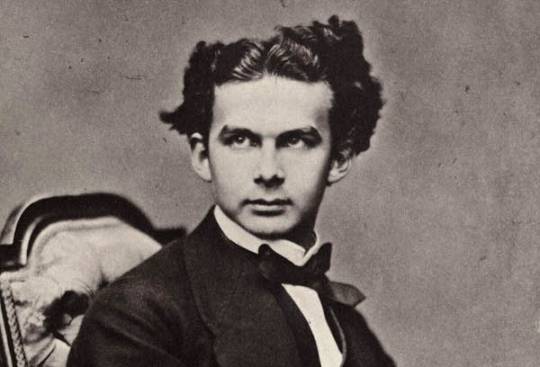
There are a few different theories as to how Tchaikovsky came up with the idea for Swan Lake. Though the libretto is based on a story by the German author Johann Karl August Musäus The Stolen Veil, many of Tchaikovsky’s contemporaries claimed that he was deeply fascinated by the tragic life story of Bavarian King Ludwig II - sometimes called the Swan King - who died under mysterious circumstances by drowning himself in a lake.
It is likely that Tchaikovsky chose Ludwig II as the prototype of Prince Siegfried. It is easy to tell that the composer clearly enjoyed working on the music for Swan Lake, as he wrote far more material than would ever be required. As a result, the version most commonly performed today is, in fact, an edited one, created after Tchaikovsky’s death and significantly shorter than the original work.
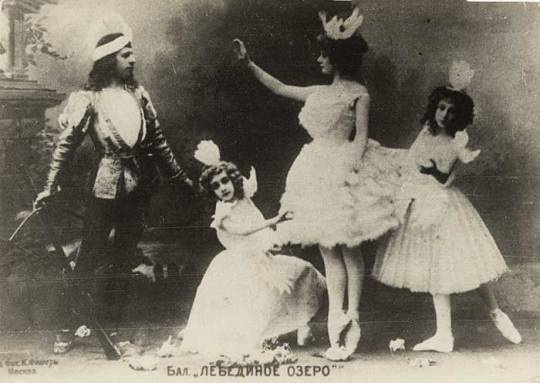
Considering that Swan Lake is currently the most frequently performed ballet in the world, it's hard to imagine that it was a failure upon its premiere, with near unanimous criticism of different production aspects. Critics were universally disparaging, claiming the production was indistinctive and forgettable. They disliked the set and the choreography, thought the orchestra and dancers were subpar, and thought Tchaikovsky’s score was too complicated. The dancers who performed in the ballet’s premiere also declared Tchaikovsky’s music was too rich to accompany their balletic moves, and simply too difficult to dance to.
Because of these distractions, the actual brilliant score by Tchaikovsky got largely overlooked amidst the chaos. Although a few critics did recognise the virtues of the masterful score, it was considered far too complex for ballet, too “noisy” and too “symphonic”, resembling the grand, weighty music of Richard Wagner. Even the initial ballet dancers deemed the music too difficult to dance to as its density clashed with the fluid and graceful balletic movements.
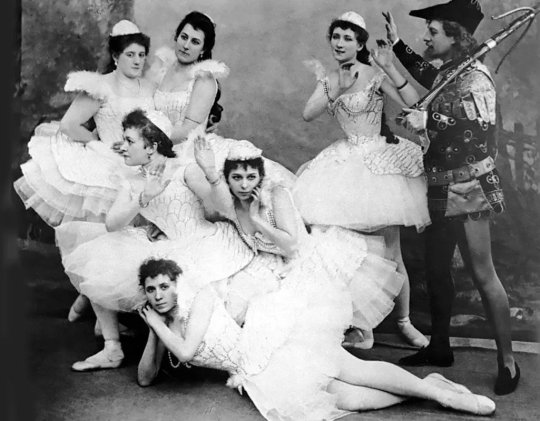
One of the issues for the premiere performance was the absence of the Bolshoi’s prima ballerina, Anna Sobeshchanskaya. Sobeshchanskaya rejoined the production as Odette/Odile in April 1877 but insisted on making certain changes to the choreography and score. Two years later the original choreographer, Julius Reisinger, left Moscow and was replaced by Belgian choreographer Joseph Pater Hansen. Hansen set about re-staging Swan Lake, launching his new version in January 1880. All 33 performances of the ballet between 1877-1883 sold out, attesting to the ballet’s increasing popularity amongst audiences.
A planned revival of the ballet in the early 1890s was cast into doubt by the death of Tchaikovsky in November 1893, who didn’t live to see the ultimate success of his ballet. Tchaikovsky had written far more material than was ever required, and after his death, Riccardo Drigo took on the job of revising Tchaikovsky’s score, with the approval of his brother Modest Tchaikovsky.
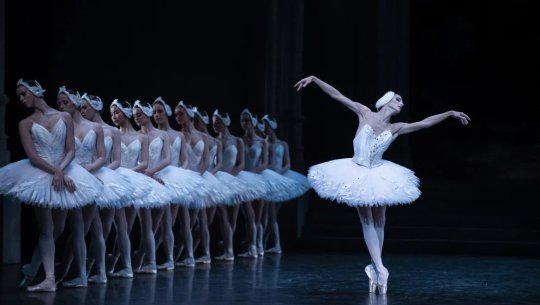
The revised and edited version – commonly the version of the score used today - is considerably shorter than the original, full-length work. It premiered on 15 January 1895 by the Maryinsky Ballet at the Maryinsky Theatre to overwhelmingly positive reviews.
Call it what you like - Dance of the Four Swans, Dance of the Cygnets, The Four Little Swans - but for me the pas de quatre from Swan Lake is one of the most iconic dances in one of the most iconic classical ballets of all time. It is a coveted role for a ballerina, one that requires technical precision and teamwork. The light-hearted Dance of the Cygnets involves 16 pas de chat performed by four dancers moving sideways in exact unison with their arms interlaced.
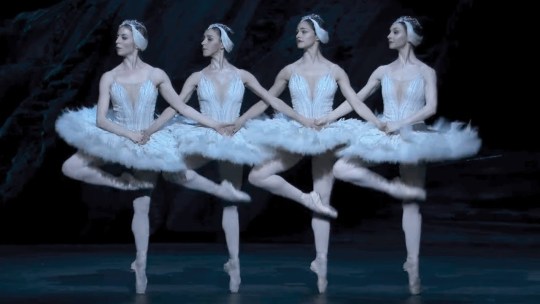
I’ve always found its spirit of sheer innocence and beauty breath-taking to watch. I’m left with wonder restored and a distinct feeling of the flight of innocence coming back to rest in my hardened heart.
Video: Royal Ballet's Swan Lake (2018)
#gottlieb#robert gottlieb#quote#tchaikovsky#swan lake#ballet#ballerina#music#dance#dancers#history#music history#technique#movement#pas de quatre#dance of the cygnets#pas de chat#beauty#arts#culture
253 notes
·
View notes
Text
perfect
Happy SoMa Day to all who celebrate! A national holiday, as far as I'm concerned 😋I offer a fluffy, bite-sized little ficlet as my contribution, which features some of my favorite Soma tropes - grumpy Soul, domestic fluff, accidental cuteness, and BREAKFAST - all in less than 1k words!
Read it on AO3, or under the cut in its entirety!
-
“You’ll feel better once you have some food in you.”
Soul knows she’s right–Maka is almost always right, not that he’d willingly admit it–but still, he’s choosing to gripe about it.
He gripes about it all the way from his motorcycle to the glass entry doors of the restaurant, through the tightening of his meister’s grip on his wrist, until they're sliding into plush, squeaky booth seats and the hostess is shoving menus into their hands with a stifled smirk.
He bitches a little less, however, when his eyes fall upon the wide selection of food items displayed on the pages of said menus, as he flips through the smorgasbord of breakfast offerings. Banana nut pancakes and huevos rancheros, Belgian waffles and eggs benedict florentine. This place has every breakfast delicacy under the sun.
Unfortunately, the rest of the population of this po-dunk little Midwestern town must know this, too, as the restaurant is packed, and harbors every social annoyance under the sun as well.
Screaming toddlers. Middle-aged brunchers clinking their glasses of mimosa too loudly. Elderly couples staring at him obviously, their expressions aghast with horror. A crowd of servers gathered around a nearby table, presenting a young girl with a stack of birthday pancakes as they sing to her.
His head hurts, they got back to their hotel room after the mission way too late, and he’s running on a less-than-optimal amount of sleep. He wants to shovel a giant plate of scrambled eggs and bacon into his face and then promptly crash into the nearest sleep-able surface.
Soul groans and lets his head fall to the table, his forehead meeting wood with a heavy thunk. Moments later, there’s the all-too-familiar sensation of a pinch to his ear.
“You’re such a grump,” Maka giggles.
“I’m allowed.”
“Never said you weren’t,” she replies. He waits for her to continue berating him–’sit up straight already’ or ‘stop breathing on the table, it’s disgusting’- but she doesn’t. He rolls his head around, angling his eyes up to look at her, and finds her attention focused elsewhere.
“Isn’t this place just the cutest?” she muses. “I love the décor. It’s so cozy and welcoming.”
She’s gazing out at the room beyond, a twinkle of delight in her eyes as she takes it all in. Soul notices, too, for the first time–opposite them is a flickering fireplace framed by a brick hearth, and whimsical works of modern art hang upon every wall. Strategically placed ivy plants bring some color to the dining room, their jade-green, star-shaped leaves cascading down in long, elegant tendrils.
And on the wall of the booth they’re presently seated at, a lushly textured panel of artificial greenery. Maka’s flaxen head contrasts nicely against the darker shade, and–it would make for a lovely photo backdrop.
“Hey.” He sits up, suddenly feeling invigorated, and reaches a hand into the back pocket of his jeans to retrieve his phone. “Smile for me real quick?”
Maka blinks at him. “What?”
“You heard me.”
“Are you… are you taking a picture of me?”
“No, I’m checking the weather for our flight home later,” Soul deadpans. In response, Maka sticks her tongue out at him and wrinkles her nose in an exaggerated grimace. Soul shrugs and hits the camera button, forever immortalizing the moment on digital film, and Maka blanches when she realizes he’s snapped a photo.
“H-Hey! Delete that!”
“No.”
“W-Well, take another one at least–”
“Pose nicely, then.”
Maka pouts, her cheeks visibly flushed and her brows cinched together, but before he can get that expression on film, she composes herself–adjusts her pigtails and straightens her spine, schools her face into a pleasant, soft smile. Soul lines her up in the viewfinder of his camera app, and–
Snap.
He examines the photo for several minutes, eyes darting between his meister and the image of her on his phone screen, before nodding subtly to himself.
“Well? How do I look?”
“Perfect.”
His fingers tap, tap, tap away as he uploads the picture to his story, witty caption and all–’She dragged me to a bougie brunch place instead of letting me sleep in’- and doesn’t realize Maka has fallen silent until he’s hit the post button.
When he puts his phone down and looks at her once again, she's staring at him with a strange expression on her face, her bottom lip between her teeth and her cheeks a shade of scarlet nearly rivaling his eyes.
“What?” he asks.
Maka clears her throat, runs a nervous finger idly around one of her pigtails and looks down at her lap.
“N-Nothing.”
At that moment, his phone pings–a reply to his story post from Black Star.
“Bro, you’re such a sap.”
#soul eater#soul x maka#SoMa Day#soul eater evans#maka albarn#soul eater fanfiction#cherry writes#fluff#ficlet#one shot#writers on tumblr#ao3 fanfic
25 notes
·
View notes
Text

Henry Ossawa Tanner - Salome (ca. 1900)
If not for the title Salome, the subject of this mysteriously composed painting might now have been understood by viewers as the woman, who according to the New Testament, was responsible for the beheading of John the Baptist after dancing for King Herod.
In describing this depiction, art historian Hélène Valance states, that here Tanner, "…stages an unusually sensuous feminine figure cast in a strong contrasting light. Like John the Baptist, whose gruesome severed head sits in the foreground, Salome - except for a flash of white, threatening teeth - is visually decapitated by the shadows hanging over her face. The thinly veiled curves of her hips and stomach emerge from the dark, as though she were exposed to a bright spotlight."
The importance of this work lies in the fact that it is unlike any other in Tanner's oeuvre. While he made several religious paintings, this one uncharacteristically featured a nude whose sensual depiction borders on the erotic. There is a degree of uncertainty surrounding the work in that historians have failed to definitively understand the artist's motivations and why he rendered the subject the way he did. Some interestingly have linked it to his fascination with the Symbolism art movement. According to curator Robert Cozzolino, "Charles C. Eldredge included Tanner's Salome […]in his groundbreaking and still unique book on American Symbolists, a group who may form the most visually persuasive link between Tanner and the degenerative eroticism that was rampant among the Belgian and French Symbolists. However, Salome was an anomaly in Tanner's work, and the context in which he explored it remains mysterious." What is clear is this painting is a marked departure for the usually reserved artist. (source)
186 notes
·
View notes
Text

Flash Gordon (1936), first Belgian release poster (circa 1940s)
“This space opera was directed by Mike Hodges, and was based on the comic strip Flash Gordon. The film stars Sam J. Jones, Melody Anderson and Max von Sydow. The film is well known for its soundtrack which was composed, performed, and produced by Queen.”
Oops.
Source
35 notes
·
View notes
Text
youtube
Joseph-Hector Fiocco (1703-1741) - Pièces de clavecin Op. 1 - Adagio in G Mino ·
Trevor Pinnock, harpsichord
6 notes
·
View notes
Text
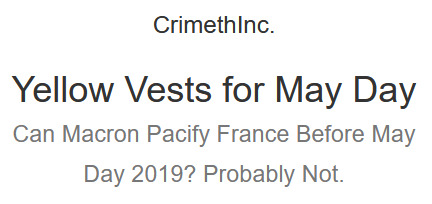
As May Day Approaches
Following this press conference, the government hoped that its official announcements would finally take the life out of the yellow vest movement, defusing the social tension that has built up. However, in the hours following Macron’s speech, several well-known yellow vest figures expressed their dissatisfaction with his proposals, calling for further demonstrations. In the end, even if some yellow vesters were sidetracked by Macron’s announcement, it was difficult to predict whether people would massively take the streets for the 24th act of the yellow vest movement.
On Saturday, April 27, about 23,600 yellow vesters demonstrated in France. For this new day of action, the epicenter of the movement was the city of Strasbourg. As the European elections will occur in a month, an “international call” was made to gather and march towards the European Parliament. Some Belgians, Germans, Italians, Swiss, and Luxembourgers participated as well. About 3000 demonstrators walked through the streets of Strasbourg, confronting police and engaging in property destruction. In the end, 42 people were arrested and at least 7 injured—three police officers, three demonstrators, and one passerby.
At the same time, two demonstrations took place in Paris. The first, organized by trade unions, drew about 5500 demonstrators, among them 2000 in yellow vests, while the other, mostly composed of several hundreds of yellow vesters, did a tour of all the major corporate media headquarters to ask for “impartial media coverage.” Other gatherings also took place in Lyons, Toulouse, Cambrai, and elsewhere in France. (All of the figures provided here are from the French authorities.)
If we compare the total number of participants in this 24th act to the other national days of action, it is undeniable that it attracted fewer participants. Does that mean that the government has finally gained the upper hand over the movement? It’s unclear. It is possible that some yellow vesters stayed home from the 24th act in order to prepare for May Day.
Last year, the intensity of property destruction and confrontations with police during the May Day mobilization of anarchists and other autonomous rebels compelled the government to cancel the entire traditional trade union march. In view of the tense social and political situation in France today, who knows what May Day 2019 could bring?
If the government attempts to cancel or repress demonstrations in Paris this May Day, the situation could become explosive. Not only because the police have adopted aggressive new law enforcement strategies over the past few weeks, but also because several calls have been made for yellow vesters to join autonomous rebels at the front of the traditional Parisian afternoon procession for the “ultimate act.” The objective is set: Paris is to become the capital city of rioting.
Here is an English adaptation of one of the calls, entitled Pour un 1er mai jaune et noir:
For a yellow and black May Day!
“When the government violates the rights of the people, insurrection is for the people and for each portion of the people the most sacred of rights and the most indispensable of duties.”
-Article 35 of the Declaration of the Rights of Man and Citizen (1793)
Macron’s government has decided to crush the current social protest by force, reaching a level of repression never seen before: prohibitions of demonstrations, deployment of soldiers, the use of armored vehicles, the use of chemical markers and weapons of war against protesters, jail sentences in spades, hands torn off, blinded protesters…
During the demonstration of May Day 2018, the Prefecture of Police counted 14,500 demonstrators “on the sidelines of the trade union procession” (almost as much as in the traditional procession) including 1200 “radical individuals.” On March 16, at the time of act 18, it was 1500 “ultra violent” ones who were present among the 7000 demonstrators, according to the figures of this same police.
Today, what frightens the state is not the rioters themselves, but the adhesion and understanding they arouse among the rest of the population. And this despite the calls, week after week, for everyone to dissociate themselves from the “breakers.”
If there is one group that currently strikes France with all its violence, it is not the “Black Bloc,” nor the yellow vests; it is rather the government itself.
We are calling on all revolutionaries in France and elsewhere, all those who want this to change, to come and form a determined and combative march. Because if repression falls on everyone, our response must be common and united. Against Macron and his world, let’s take the street together to revive the convergence of anger and hope. Let’s get ready, let’s equip ourselves, lets organize ourselves to overthrow him and drag him through a day in hell.
War has been declared!
[1] “Proportional representation” would mean that if, for example, 30% of voters vote for the Green Party, then members of that party would receive 30% of the total number of seats. So far, legislative elections offer no proportional representation—even if a party receives a large percentage of votes, it might not gain many seats at the assembly. People have been complaining about this “unfair process,” so now the government is willing to increase proportional representation in elections. Unfortunately, for several years now, the National Front has usually received around 20–25% of votes but only currently holds 6 seats out of the 577 in the Assemblée Nationale. Increasing proportional representation will give them more power in the decision-making—although, of course, it’s not clear to what extent Macron will actually follow through on his promises.
Of course, there is no option for people who have grown disillusioned with government itself: that perspective will never be “proportionately represented.” This is why the government refused outright to recognized blank votes.
#Macron#democracy#direct action#Ecology#fascism#France#May Day#Paris#reactionary activism#yellow vests#french politics#anarchism#resistance#autonomy#revolution#community building#practical anarchism#anarchist society#practical#anarchy#daily posts#communism#anti capitalist#anti capitalism#late stage capitalism#organization#grassroots#grass roots#anarchists#libraries
12 notes
·
View notes
Note
Oh a fic request to celebrate your 200 eh??
Perhaps some domestic James fluff?
(I just want a *boundary-respecting*, silver-tongued telepath to make me coffee and a Belgian waffle okay?)
Pretty pweeeeeez
Ohohoooo, some fluffy James for my favourite composer??? Hell yea!!! One domestic James fic coming right up!!!
"mind over matter (but breakfast first)."
"Beloved, I need you to get up. You need to eat something before leaving for work."
Technically, they didn't need to get up right now. Work doesn't start til nine in the morning, and it was only six. But they didn't know when the next time they'd enjoy his morning presence. So instead of dragging James down with them for cuddles, they begrudgingly started to wake up.
Rubbing their eyes, Beloved spoke, sleep still evident in their voice. "I'm up, I'm up, no need to yell this early in the morning." They removed the blanket on them, shivering when the cold air hit them. Immediately they grabbed James' discarded clothing, hoping to provide some form of protection against the elements. It had, like always.
He chuckled, watching his pouting partner struggle to wake their mind up from their peaceful sleep. "I was not yelling, my dear. You're just not awake yet."
They groaned as they got up, only to flop into James' chest. "I am plenty awake... So fucking awake..." Their voice trailed off as the teetered the line of their consciousness.
He pushed their hair back and kissed their forehead. He picked them up, legs wrapping around his waist and head resting in his shoulder, and made his way to the living room. He was soaking up the warmth of their body, savouring and committing the feeling to memory knowing it won't last for longer.
Carefully, he sat his lover onto the stool by the kitchen island, holding them upright so he may wake them up again. It was easier this time, having already disrupted their sleep.
They shook their head and opened their eyes once more. The smell of pancakes had woken them up completely, their stomach grumbling at the delicious smell. "You dastardly villain. Using the scent of delicious pancakes to lure me from my sleep." They jabbed their finger into his chest. "You sicken me," they said with no real heat behind their words.
"Oh I know, beloved. But I need you fed before you go to work, lest you come hungry and miserable," he teased, taking their hand on his chest and kissing it. He let go of their hand and prepared a plate for his lover. He knows he won't be home to comfort them after a bad day, so the least he can do is give them a good morning.
Beloved rolled their eyes and took their plate. "What's got you sappy this morning? Sounds like you have another late-"
James kissed their forehead to stop that line of thought. "Don't you worry about that, beloved. Just eat and get ready."
They sighed, frustrated that the department would once again prevent their partner from being home. If only they would stop overworking James to fucking brink so that he can rest at their goddamn place-
James placed a gentle kiss on their cheek. "I love you, beloved, and I'm sorry."
"Never apologize, it's never your fault."
So the couple spent the rest of their limited time together that day, laughing, having fun, creating soft and loving memories that they can look back on when they're far apart from each other.
#redacted asmr#redacted audio#redacted james#HEHEHE FRENCHIE MY LOVE THANK YOU FOR THE REQUEST <33333#zo writes tingz#this is zo speaking
75 notes
·
View notes
Text

I've been searching this soundtrack for years. Last month, I finally discovered that a CD is indeed available.
“The Lovers” is a fantasy-adventure movie of Roland Joffé, the director who had the score of “The Mission” written by Ennio Morricone.
Here, the Belgian film composer Dirk Brossé stepped up to the plate.
I found the music a mixed bag. The underscoring of the action scenes I found bland and uninspired.
(Did Dirk lack the time to make these cues more interesting? It certainly looks like it.)
The exotic-romantic themes on the other hand are superb, a delight.
(I suspect that he used Asian instruments to add some “couleur locale” but the CD booklet doesn’t offer any info other than mentioning who played the “ethnic woodwind” and the “erhu”.)
The main actors Josh Hartnett and Tamsin Egerton, who met on the set, welcomed their fourth baby a few weeks ago. Is that proof that the romantic themes work?
#dirk brossé#roland joffé#josh hartnett#tamsin egerton#film music#soundtrack#soundtracks#film score#movie music#film composer#composer#composers#orchestra#erhu#cd#cds#cd collection#cd collector#movie#moivies#film#films#belgium#belgian#music#musician#musicians
1 note
·
View note
Text
"There is not a single European country in which the traditions of the old communal property have entirely disappeared. In certain areas, notably in the Ardennes and in the steep mountainous regions of Switzerland, where the peasants did not have to submit to the kind of oppression to which the German villagers were subjected after the wars of the Reformation, communal property is still widespread enough to constitute a considerable part of the territory.
In the Belgian Ardennes, the collective lands are composed of three parts: the woods, the freshly cleared ground [sart], and the pastures. They also often include arable land and quarries.
(...)
These customs clearly influence the moral character of individuals and greatly develop their spirit of solidarity, mutual kindness, and heartfelt friendliness. Thus it is customary to form voluntary work crews for the benefit of those who need work done. The latter need only to state their request by proceeding noisily through the village, calling out, “So-and-so needs something done! Who wants to help out?” Immediately a group appears and its members put their heads together to figure out who can best undertake the job, and the service is rendered. Such stories also come to us from the Queyras.
In all of Switzerland, two-thirds of the alpine prairies and forests belong to the communes, which also own peat bogs, reed marshes, and quarries, as well as fields, orchards, and vineyards. On many occasions when the co-proprietors of the commune have to work together, they feel as though they are at a festival rather than at work. The young men and women climb to the high mountain pastures, driving their herds before them to the harmonious clinking of the bells. At other times, the work is more difficult. While the snow still covers the ground, the woodsmen, armed with axes, cut the high pines in the communal forest. They strip the sawlogs and slide them down the avalanche corridors to the torrent that will carry them away in its bends and rapids.
Then there are the evening gatherings on winter nights, in which all are summoned to the home of whoever has the most urgent work, whether it is to shell corn, hull nuts, or make wedding gifts for a woman engaged to be married. During these gatherings, the work is a pleasure. The children want to participate, for everything is new to them. Instead of going to bed, they stay up with the adults and are given the best of the chestnuts roasting under the hot embers. When dreamtime is near, they listen to songs and are told stories, adventures, and fables, which are transformed by their imaginations into marvelous apparitions. It is often during such nights of mutual good will that a child’s being permanently takes shape. Here, one’s loves in life are kindled, and life’s bitterness is made sweeter.
Thus the spirit of full association has by no means disappeared in the communes, despite all the ill will of the rich and the state, who have every interest in breaking apart these tightly bound bundles of resistance to their greed or power and who attempt to reduce society to a collection of isolated individuals. Traditional mutual aid occurs even among people of different languages and nations. In Switzerland, it is customary to exchange children from family to family, between the German and the French cantons. Similarly, the country people of Béarn send their children to the Basque country, welcoming in turn young Basques as farm boys. In this way, they will all soon learn the two languages without the parents having to spend any money. Finally, all individuals with a similar trade and common interests—whether they be coal merchants, hunters, or sailors—have established virtual confraternities having neither written constitutions nor signatures, but nevertheless forming small, close-knit republics. Throughout the world, carnival performers who meet by chance on the road are allied in a sort of freemasonry that is far more solemn than that of the “brothers” who gather in the temples of Hiram."
-Elisée Reclus, "Culture and Property" (1905)
7 notes
·
View notes
Text
Hey, hi and hello, it's @brick-enthusiast coming at you from the sideblog again!
As part of a friendly agreement with @things-about-cars-in-posts, I am here to introduce another race car.
You know Peugeot? In recent years, the French brand is probably best known for fighting tooth and nail to shake a reputation of dullness. However, you've probably heard - or perhaps you remember - that Peugeot used to be a whole lot more cool.
Well, this story takes place a little bit after that. Less than a year after the last story I told, in fact, in 1995. And the similarities between the two don't end there.
The car in question is the then-new Peugeot 806.

By all means a run-of-the-mill, boring people carrier, unveiled in 1994.
PSA Group had co-developed it with Fiat, so it was also sold as a Citroen, a Lancia and a Fiat.



(As you may remember from a recent post by @things-about-cars-in-posts!)
Anyway! Peugeot wanted to do something to promote their version of the so-called Eurovan. Someone, half-jokingly, suggested to take it to the racetrack.
That someone was Pascal Witmauer, the man in charge of Peugeot's advertising in Belgium, as well as marketing for the Belgian Procar racing series. Peugeot's "promotional event" was set to be 1995's running of the Spa 24 Hours.
A 24-hour endurance race, yes.
A 24-hour endurance race that was happening at the end of July. It was May.
The project was handed over to Kronos Racing, a Belgian racing team that would go on to build successful Peugeots and Citroens for the circuit as well as dirt. And well, they did complete it.

As much as a parts-bin-special it might have been, the Peugeot 806 Procar was a serious racing machine. Its interior was stripped of anything non-essential, the 8 factory seats were replaced by a single carbon bucket and a roll cage.
The engine and drivetrain were a mix of parts from the 306 Maxi rally car and the outgoing 405 Mi16 circuit racer, while the then-new 406 Supertourisme donated a 6-speed sequential gearbox.
The van's speed certainly didn't lag behind. It qualified 12th overall and third(!) in its class. Not to mention that it certainly stood out in a field full of contemporary BMW 3-series and French hot hatchbacks.
By the start of the race, the big white box was already the crowd favorite. Pascal Witmeur (who also happened to be one of the 806's three drivers) recounts:
“Every time we passed by Raidillon¹, people were applauding. The public liked it, because apart from being atypical, it was often on two wheels!"
¹ a corner on the Spa-Francorchamps track
Unfortunately, mechanical issues didn't take long to show up. The team ran into brake problems an hour into the race. The engine itself gave out before the 10-hour mark, leading to a DNF for the Peugeot.
Not that it mattered to the public though. The touring van single-handedly improved the image of all MPV's² - not just the French-Italian quadruplets. Peugeot of Belgium had 5000 posters printed - all of which were given away signed by Witmeur.
"For a few hours, I was more more famous than Johnny Hallyday³!"
he laughs, admitting it was likely that many workers from Peugeot's local Sevel Nord⁴ factory came to see the race.
² multi-purpose vehicles in case you don't know, European for "minivans"
³ iconic French singer, composer and actor, regarded as "the French Elvis Presley"
⁴ that's where the 806 was assembled. Note the logo on the side of the race car's front bumper!
The very same Peugeot 806 Procar is still around to this day. After the race, it was reportedly kept by one Jean-Pierre Montron - founder of Kronos Racing - until his passing. It went up for sale in 2020 (wherein it had a bunch of articles I could use as sources written about it) and again in late 2022, when it failed to sell at auction.
Thank you for reading <3
image links: [one through four] [five]
17 notes
·
View notes